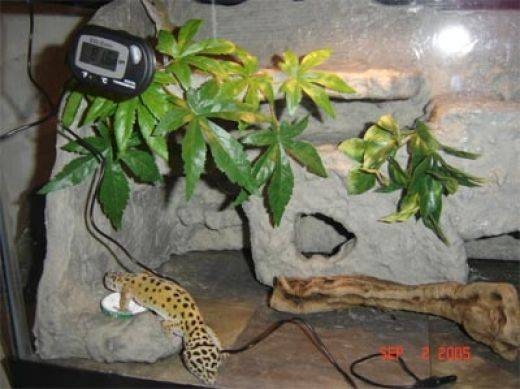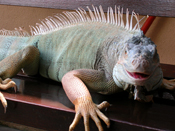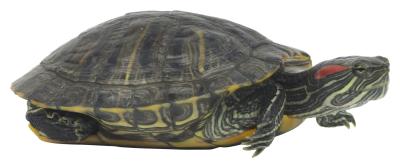The first question you must ask yourself before buying a bearded dragon is:
Do I have access to a good reptile veterinarian?
This is so very important because unfortunately bearded dragons do fall ill and you'll want to have quality care available when and if this occurs. Normally vets don't have the specialized knowledge of reptile vets and wouldn't be able to deliver the same quality of care.
It's usually easy to identify a sick bearded dragon as they will give you a number of telltale warning signs. Just like people, they will develop a 'sick' looking appearance, become lethargic and lose interest in food. However these signals may change depending on the cause of the problem. Below is a list of illnesses you may encounter as a bearded dragon owner.
- Nutritional disorder
- Beta-carotene deficiency
- Overeating
- Parasites
- Ectoparasites
- Ectoparasites
- Endoparasites
- Respiratory diseases/infections
- Viral illnesses
- Fungal diseases
- Gastrointestinal infections
- Traumatic injuries
- Hereditary diseases
- Reproductive disorders
- Neurological disorders
- Environmental disorders
- Metabolic bone disease
- Yellow fungus
As you can see there's quite a list and whilst beardies usually live for between 4-10 years. Some of these illnesses have the potential to shorten this life expectancy dramatically. Though most of the time beardie health problems are completely preventable. With a properly established enclosure, good lighting, plenty of space and a healthy diet you should enjoy many, many happy years with your beardie.
Some tips to keeping your beardie safe and healthy are below:
- Always wash your hands - you may be the carrier of harmful bacteria so always practice good hygiene before and after handling your beardie.
- Clean the enclosure on a regular basis to keep it sparkling clean and too avoid the nasty smells. This includes replacing the substrate as often as necessary.
- Clean food and water dishes often, as this can harbor bacteria also and cause your beardie to become ill.
- Always monitor the temperatures inside the enclosure with a thermometer and check it regularly.
- Familiarize yourself with his natural behaviors, so you can identify when he starts to act a little strange
- Have a reptile vet in an area near you.

 How to Build a Fake Rock Background
How to Build a Fake Rock Background
Ho
How to Build a Fake Rock Background
How to Build a Fake Rock Background
Ho
 Important Iguana Facts
Iguanas are among the most popular pets nowadays. More and
Important Iguana Facts
Iguanas are among the most popular pets nowadays. More and
 Choosing an Amphibian
Choosing an Amphibian
Choosing an Amphibian
Choosing an Amphibian
 How to Tell if Your Red-Eared Slider Turtle is Male or Female
How to Tell if Your Red-Eared Slider Turtle is
How to Tell if Your Red-Eared Slider Turtle is Male or Female
How to Tell if Your Red-Eared Slider Turtle is
 Choosing a White-Lipped Treefrog
Choosing a White-Lipped Treefrog
Choosing a White-Lipped Treefrog
Choosing a White-Lipped Treefrog